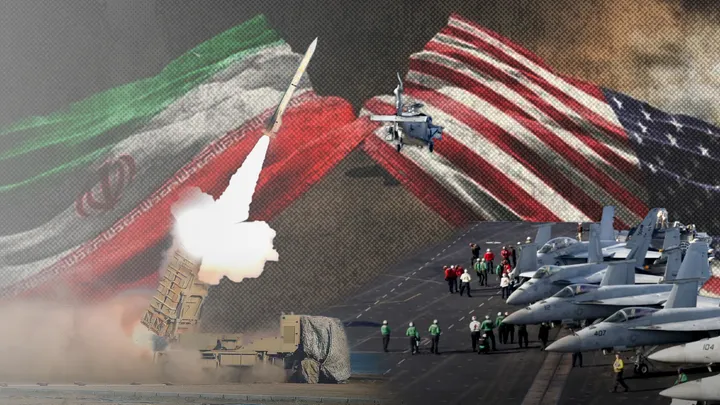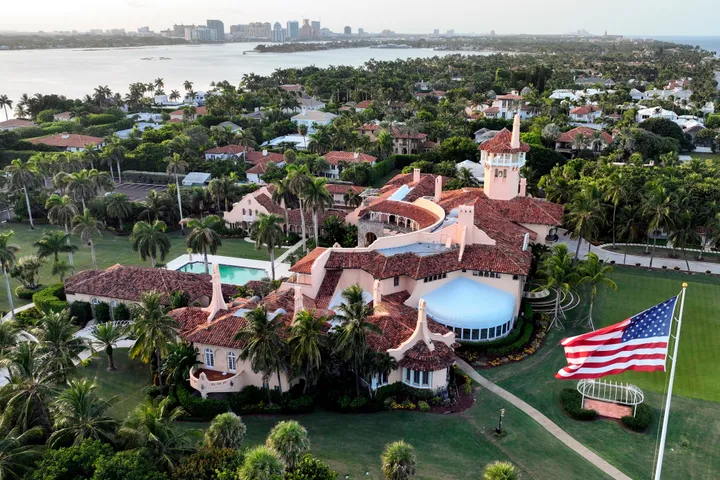Pope Francis wrapped up a historic three-day visit to the United Arab Emirates (UAE), the first-ever papal visit to the Arabian Peninsula.
The UAE invited the pope as a part of its 2019 ‘Year of Tolerance’. In exchange, the pope described the UAE as “a country which strives to be a model for coexistence and human fraternity, a meeting point of different civilisations and cultures. A place where people find a safe place to work, live freely and where differences are respected”.
However, while the UAE portrays itself as a tolerant country where different religions coexist, its continuous crackdown on dissident Muslim voices and harsh security measures on Islamic life remain.
Devin Kenney, a researcher on the UAE for Amnesty International, confirms the lack of critical voices in the kingdom.
“They’re certainly not tolerant of any form of political dissent,” he said.
‘Year of tolerance’
The UAE launched its Ministry of Tolerance just days before the papal visit.
The UAE currently hosts eight Catholic churches due to the fact that nearly one million Catholics live in the Emirates. The majority are workers from the Philippines and India.
Besides churches, the UAE has a Hindu temple in Dubai with another large temple under construction in Abu Dhabi to help accommodate the roughly 3.3 million Indians who live in the country.
Also, there are numerous churches of other Christian denominations in the UAE, as well as a Sikh temple and a space for Jewish worship.
Making Islam governable
The state’s tolerance-themed project, however, has its limits. While allowing churches and other places of worship to exist, and marking holidays like Christmas, Hindu Diwali and Chinese New Year with festivals and celebrations, the kingdom has simultaneously stomped out critical Muslim voices in the name of national security.
Since the current Crown Prince of Abu Dhabi, Muhammad bin Zayed, took charge of the UAE security agency in the early 1990s, Islamic life and activism have been tightly restricted and monitored.
A permit is required to hold a Quran memorisation circle or lecture, collect donations or distribute books or audio in mosques. The law also prohibits mosque employees from preaching and teaching religious lessons outside of mosques.
Moreover, all imams receive their salaries from the government and — with the exception of the most senior imams — must follow official weekly guidance on the content of Friday sermons.
Human rights activists and Muslim Brotherhood sympathisers have been imprisoned, academic research deemed sensitive has been curtailed, and human rights groups have been barred from entry. Political parties are banned, and local media censored.
Recently, the Gulf state was slammed by rights groups after an Emirati court upheld a 10-year jail sentence against rights activist Ahmed Mansoor for criticising its rulers on social media, just two weeks after the UAE declared 2019 the ‘Year of Tolerance’.
Politics of ‘terrorism’
The Crown Prince Zayed’s long-time antipathy towards Islamic activism and the Muslim Brotherhood formally became law with the UAE’s new ‘terrorism law’ in 2014.
The overly broad definition of terrorism fairly outlawed armed groups like Al Qaeda, but then also went on to name the Muslim Brotherhood, which participates in democratic elections across the region, as ‘extremists’.
This has led to large-scale human rights abuses with Human Rights Watch warning that the law would be used to prosecute people solely for exercising their rights to free speech, association, or assembly.
The ‘terror list’ the UAE released in 2014 lumped Daesh and Al Qaeda with non-violent organisations that peacefully operate in the US and Europe. The list has been criticised for becoming a tool to silence any political dissent and opposition voices that don't necessarily fit the UAE’s national interests.
It included groups that have not been designated as terrorist groups by either the US or Europe, such as the Council on American-Islamic Relations, a Muslim advocacy and civil rights group in the US, as well as Islamic Relief Worldwide, a UK-based humanitarian aid organisation with operations around the world.
The kingdom has also branded the Muslim Brotherhood a terrorist organisation, viewing it as a threat to the country’s system of hereditary rule.
However, Adam Coogle, Middle East researcher from Human Rights Watch believes that as long as activists like Mansoor remains in prison and the war in Yemen continues, “no amount of money nor army of public relations firms will be able to wash away this stain”.
Referring to the pope’s visit, Kenney simply described it as “a fairly straightforward PR gesture”.























